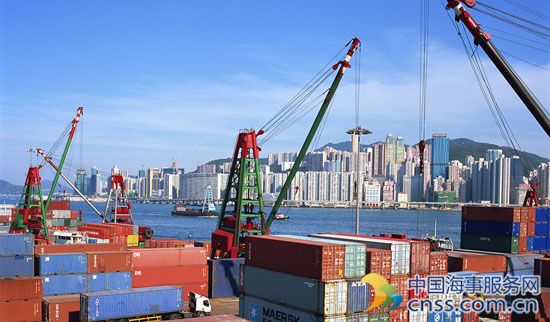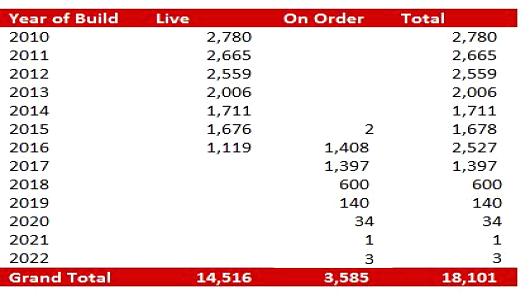Hanjin’s returning charters and selling ships, depressing global shipping assets

Hanjin Shipping’s asset sales have started with three ships under charter sold by their owners last week, setting off a potential decline in ship values worldwide as the beleaguered maritime industry comes under renewed pressure.
On Monday, a South Korean judge ordered all charters to be returned to their owners, according to media reports.
As of early September, Hanjin operated 141 vessels but most were on charter.
According to ship valuer VesselsValue, the 62 ships Hanjin owned–which also include bulkers and tankers were worth about $1.6 billion collectively as of Tuesday.
David McNew | AFP | Getty Images
More than half of its owned container fleet is also coming under the hammer, The Wall Street Journal reported on Friday, citing people familiar with the matter.
The impending sales were likely to drive asset values of ships down as a glut of ships continue to dominate the market.
“We would expect to see asset prices soften following any possible sales that may occur,” said VesselsValue analyst, Toby Yeabsley.
According to mid-September statistics from VesselsValue, there are almost 3,000 ships of all types expected to come to the market from now until end-2017, with 1,408 of those ships due to be delivered before the end of the year. The orders for the ships were taken several years ago.

Ships that are “Live” means they have been delivered or are in the final test stages.
Hanjin filed for court receivership on August 31, leaving its ships stalled around the world while carrying an estimated $14 billion worth of stranded cargo, much of it Christmas goodies headed for retailers’ shelves.
The shipping line was no minor industry player; industry data provider Alphaliner placed Hanjin as the seventh-largest globally, with 98 ships and a 2.9 percent market share. That compared with the largest, APM-Maersk, which has around 622 ships and a 15.4 percent market share.
“(Hanjin’s fall) is a reflection of the state of the industry’s carriers. The carriers have not been earning a sufficient return on capital; there’s been oversupply of shipping space, rates have been extremely low,” said Jeremy Masters, Peel Ports Group’s Asia Pacific regional director last week.
Source: CNBC
HEADLINES
- Do shipping markets want Biden or Trump for the win?
- All 18 crew safe after fire on Japanese-owned tanker off Singapore
- Singapore launching $44m co-investment initiative for maritime tech start-ups
- Cosco debuts Global Shipping Industry Chain Cooperation Initiative
- US warns of more shipping sanctions
- China continues seaport consolidation as Dalian offer goes unconditional